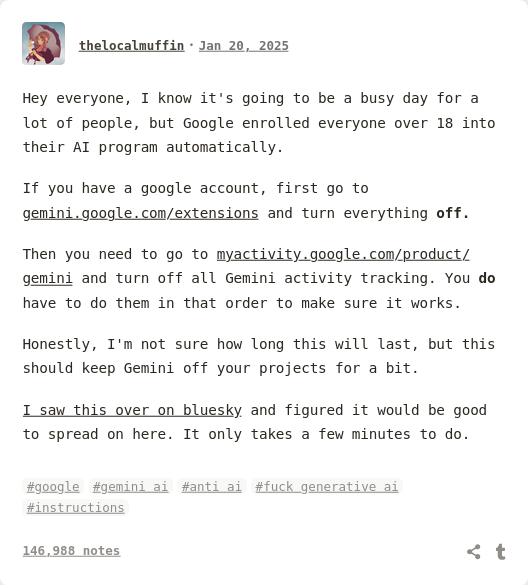Fuck AI
2756 readers
1251 users here now
"We did it, Patrick! We made a technological breakthrough!"
A place for all those who loathe AI to discuss things, post articles, and ridicule the AI hype. Proud supporter of working people. And proud booer of SXSW 2024.
founded 1 year ago
MODERATORS
1
2
85
Festival crowd boos at video of conference speakers gushing about how great AI is
(www.businessinsider.com)
3
4
5
111
6
7
8
74
"AI" Could Be the Most Effective Tool for Dismantling Democracy Ever Invented
(www.commondreams.org)
9
10
11
12
13
14
16
Cybersecurity Risks of AI-Generated Code | Center for Security and Emerging Technology
(cset.georgetown.edu)
15
16
17
18
19
20
21
22
23
24
25
view more: next ›





